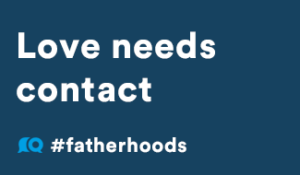My grandchildren are telling us worrying things about their home life and it sounds like neglect. What do we do?
Children say such weird and wonderful things sometimes, don’t they? But sometimes they say something which causes real concern and it’s then tricky to decide what to do about it, if you should do anything at all. Did they mean what they said? Did you misconstrue it? Should you ask them again for more details?
It’s worrying to take the steps to report neglect, particularly when you are no doubt worried about the impact on your family relationships and the possibility of a false flag, but remember that neglect shouldn’t be ignored and your grandchild depends on you for love, support and safety.
As a grandparent you’ve already been there, done that and got the T-shirt parenting your own child. Whether it’s occasional visits or whether you now help regularly with childcare for your grandchildren you have a role to play in their life, shaping their understanding of the world around them. You also have a role in keeping them safe, but you don’t want to upset their parents, who may take your concern as personal criticism, or if you think it will impact on your relationship.
Abuse isn’t just physical harm. It can be verbal, causing emotional harm and impacting on the child’s mental health and well-being. A new-born or infant can’t speak out for themselves and toddlers are prone to bumps, bruises and grazes. However, they can usually remember how they got them and whether it was falling over during play or something more serious.
Neglect is the ongoing failure to meet a child’s basic needs and is the most common form of child abuse. If the children are saying things which mean you think they may be subject to neglect and/or abuse you have to act.
As a rule of thumb, perhaps try to detach yourself emotionally from this being YOUR grandchild and start with health and safety – do you feel that they are being put in danger, even unintentionally? If so, it is time for you to act, however difficult that may be. So, what can you do?
- You can contact the NSPCC for confidential support and advice.
- You can call your local Children’s or Social Services department and notify them, whether you chose to do so anonymously or confirm your identity and relationship to the child.
- You can call the police and report your concerns
Your concerns will then be investigated by the appropriate public bodies and action can be taken, as necessary, to safeguard the children.
If you are concerned that this isn’t a matter for the police or social services and want to do more, or perhaps their enquiries determine that the problem isn’t sufficiently serious for them to become involved, but you aren’t able to discuss it directly with the parents, you can make an application at Court to define your involvement with your grandchildren.
There are various Court applications which grandparents can make. You should consider mediation before making a Court application, given the cost both financially and emotionally of bringing the matter before the court. Before your application can be heard the Court must first grant permission for your application, because grandparents don’t have an automatic right to bring an application to Court, as they don’t have Parental Responsibility for the child. In granting permission the Court will consider the nature of the proposed application, the applicant’s connection with the child and any risk there might be of that proposed application disrupting the child’s life to such an extent that he would be harmed by it.
A grandparent can apply for a special guardianship order or a child arrangements order. A child arrangements order defines who the child spends time with and when, sometimes also with definition as to with whom they shall live. Where a grandparent has a ‘lives with’ child arrangements order they will also then be granted Parental Responsibility for the child. The child’s welfare is the Court’s paramount consideration and the Court will order arrangements where they cannot be agreed between the parties.
A Special Guardianship Order is made for children who cannot live with their birth parents and who would benefit from a legally secure placement. It is more secure than a Child Arrangements Order as the parent cannot apply to change a Special Guardianship Order without permission of the Court. Social services are involved in preparing a report for the Court as to what is in the best interests of the child. The special guardian is granted Parental Responsibility for the child subject to the order and this can be exercised to the exclusion of the parents over issues surrounding the child’s daily care, although the parents will still have an ongoing legal relationship with their children. A Special Guardianship Order gives the child security and a long-term placement.
It’s worrying to take the steps to report neglect, particularly when you are no doubt worried about the impact on your family relationships and the possibility of a false flag, but remember that neglect shouldn’t be ignored and your grandchild depends on you for love, support and safety.
Posted on July 5, 2018














